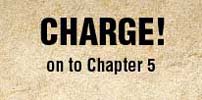
 |
| We were carried by steamboat on the Mississippi River from Vicksburg to Memphis. When we were about half way, we were ordered off the boats to drive away an army of guerrillas who had been bothering transportation on the river of late. In the battle that followed our regiment had four men instantly killed, while none were wounded, a most remarkable record, by the way, the usual rule being that again as many were wounded as were killed. Henry B. Henryson (Beroen) of Story City was killed in this engagement, which was called the Battle of Lake Chicot. The fighting occurred on an extremely hot day, June 6, 1864. After the battle, we set work to bury the dead. They were all buried in one grave and some of them had to be carried a considerable distance. My comrade, Osmund Egeland, who was always willing and eager to lend a helping hand, got sick immediately after burying the dead and died in a hospital, or pest house, in Memphis a few days afterward. The cause of his death was over-exertion, the heart being over-taxed. Upon our reaching Memphis, the regiment boarded a train of flat cars and were taken to a place called Tupelo, Mississippi, where they had a battle. I was taken sick at Memphis and was unable to go with my regiment to Tupelo. The hospital being full, I was taken to what was called Meridian Camp, where there several hundred others who were sick. It was there I was given my 30 day furlough. I started for home the same evening I received my permit on a Mississippi River boat, reaching Cairo, Illinois, in 24 hours. The remainder of the journey was made by rail. We were supposed to pay one-half fare, but having no money, we took advantage of a regulation that allowed a soldier transportation, providing, however, for the eventual payment of the fare through a reduction from the monthly wages. There were several hundred soldiers at Cairo, who were on their way home on furloughs, and a ticket agent was kept busy writing transportation all night. I was not able to crowd up and get mine, but luckily, one of the soldiers, who was going in my direction (Marshalltown, Iowa), and who was not as sick as the rest, finally succeeded in getting transportation for all who were bound for that place. As we had nothing further to do, we strolled in the direction of our train, arriving much to early, a couple of hours at the least, but we were in luck. Many others had strolled along in the same fashion, and we filled the coaches long before it was time to start, leaving about half the number with long faces to wait for the next train. We went from Cairo to Dixon, Illinois, a distance of 355 miles, and then on to the Mississippi, where we slept on the river bank all night. The next morning we hired an Irishman to take us across the river on a ferry boat for 10 cents apiece. We were now at Clinton, Iowa, and here we went to a soldiers’ home where we rested for a day. After a rest, we felt stronger and continued our journey toward Marshalltown. This was as far as I was given transportation, and now arose the question as to how I might be able to get home from this place. I possessed just 50 cents, and I knew that this was not sufficient to pay for a ticket to Nevada. I got on the train, thinking to ride as far as the conductor would allow, and trust to luck as to the method of locomotion the remainder of the way. As the conductor came around, I handed him the 50 cents and told him how far I wanted to go, which was to Nevada. He wanted more money, but I told him that this was all I had. He looked at me for awhile and noting my miserable condition handed back the 50 cents, generously saying that I needed that much for breakfast, and passed on. Arriving at my destination, I hunted the stage-coach man, whose route lay between Nevada and Rose Grove, and engaged a ride to Roland for my 50 cents, yet intact. The price was higher, but since this was all I had he finally promised to take me. A little while before the stage-coach was due to leave, I found an acquaintance, Vespestad, by name, who invited me to ride with him and promised to take me to my very doorstep, even saving me the walk from Roland. The stage-coach ride was accordingly cancelled and my 50 cents still remained untouched. When I returned to the army, I expected that the railroad fare, which had been advanced by means of the "transportation" would be deducted from my monthly pay, but undoubtedly through some error, I received my full pay regularly. Thus it came about that I had an absolutely free ride from Memphis, Tennessee, and home, a distance of about 1,000 miles, and this done not through any "bum" riding or tramping or intention of cheating. On the contrary, I was fair and honest about it and intended to pay all. I stayed at home 30 days and had gained in health a great deal but not fully recuperated, so through Dr. Stitzel’s (Nevada) aid and intervention, I was allowed an additional 30 days, thus making it a 60 day furlough. By this time I was well again, and started my way back to the army in September. I found my regiment in Cairo, Illinois. |
 |
 |
 |
Copyright © 1996 by John Ritland. All rights reserved. For permission requests, contact jritland@cox.net.
|